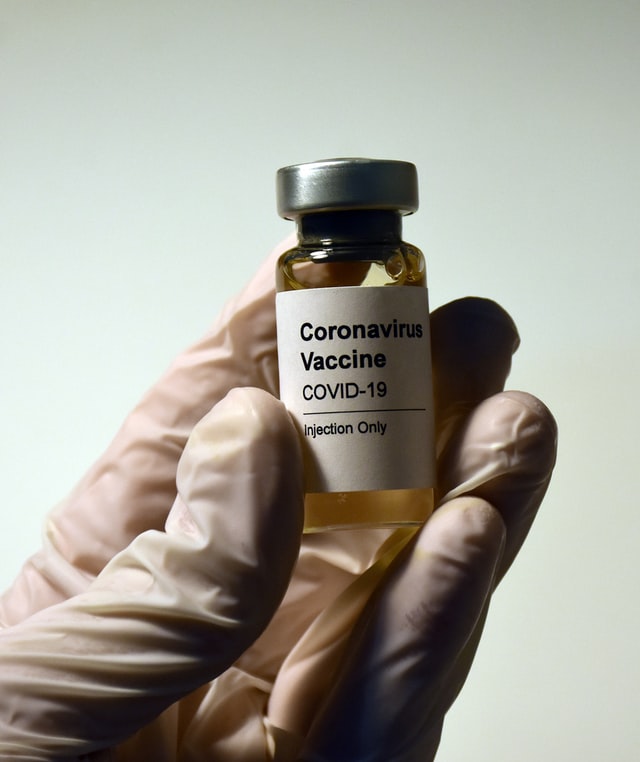Photo by Hakan Nural on Unsplash
There are a few in use and a few more in the pipeline, but everyone wants them and they’re in short supply.
So, COVID-19 vaccines are on their way to Namibia.
According to health minister Kalumbi Shangula the first batch of vaccines through the COVAX Facility should be delivered to Namibia in the second half of February 2021.
“We are pleased to inform you that Namibia can expect to be distributed doses of AstraZeneca vaccine….mid/late February, subject to WHO Emergency Use Listing (EUL),” stated minister Shangula at the 24th COVID-19 briefing on Wednesday, 3 February 2021.
But first, what is the AstraZeneca vaccine?
The AstraZeneca vaccine is also referred to as the Oxford-AstraZeneca vaccine, having been developed by the University of Oxford and AstraZeneca in the UK. It was tested in the UK, Brazil and South Africa, and has a reported two-dose efficacy of 70%, meaning it provides 70% protection against contracting symptomatic COVID-19 disease in people over 18 years of age.
Ok, so let’s dispel some vaccine myths …
Why did it take only a few months to produce and approve the vaccine when other vaccines take years to develop and get approved?
Yes, the development of COVID-19 vaccines has not been typical. According to Johns Hopkins University in the US, the vaccines were quickly developed because: Some clinical trial phases were combined; Cases accumulated rapidly to assess vaccine efficacy because of the pandemic; Manufacturing capacity was scaled up during the clinical trials but at financial risk. Contributing to the speed of vaccine development was also the fact that medical science had learned a lot about coronaviruses during the SARS and MERS outbreaks this century.
Why do they have a vaccine for COVID-19 when they never developed a vaccine for HIV-AIDS, cancer and even the common cold?
On the failure to find HIV, cancer or common cold vaccines, a Reuters fact check article from December 2020 provides useful information, stating of an HIV vaccine: “Finding an HIV vaccine has been challenging because the virus “mutates rapidly and has unique ways of evading the immune system,” according to the NIH’s National Institute of Allergy and Infectious Diseases (NIAID).”
It continues: “While vaccines are usually inactivated or weakened viruses, “inactivated HIV was not effective at eliciting immune responses in clinical trials” and “a live form of HIV is too dangerous to use”.
As for a vaccine for cancer, the article explains: “There is no one single cause for cancer,” Stanford University Healthcare points out. Instead, scientists believe that it is the interaction of many factors together that produces cancer. The factors involved may be genetic, environmental, or constitutional characteristics of the individual.”
And on the common cold, it reads: “WebMD explains that finding an effective vaccine for the common cold has been difficult “primarily because there are more than 200 different varieties of viruses that can cause colds”.
Vaccines have been used to kill black people especially as the West/whites want to reduce the black population/wipe out black people?
This is a piece of anti-vaccine disinformation that has been particularly resilient. There is no evidence that COVID-19 vaccines were created by whites to kill or sterilise blacks. This falsehood has roots in facts, though: Unethical vaccine tests done on black military veterans in the US in the mid-1900s, as well as a history of medical experimentation on colonised African populations in the 20th century.
Have people died from being vaccinated with a COVID-19 vaccine?
By Thursday, 4 February 2021, nearly as many people had been vaccinated with a COVID-19 vaccine worldwide as have had COVID-19 to date. That means nearly 100 million people have already been vaccinated. While there have been some deaths among people who have received a COVID-19 vaccine, there has not been a single death directly linked to a COVID-19 vaccine to date.
When speaking about COVID-19 vaccines, health minister Shangula also stated: “Apart from the COVAX Facility, we are in discussion with manufacturers of Covid vaccines in China, Russian Federation, India and United States of America for additional vaccines supply to cover the remaining 40% of the population.”
The vaccines the minister was probably referring to were the following: Sinopharm (China); Sputnik V (Russia); Covishield (India); and either the Pfizer, Moderna or Johnson & Johnson vaccines (USA).
Information on all these vaccines is available online.
At the end of his speech on 3 February 2021, minister Shangula stated: “We are disturbed by misinformation and false claims against the safety and benefits of the vaccines to individuals. I call on the Namibian people not to be misled and to have faith in the government.”
Anti-vaccine disinformation has accompanied the COVID-19 pandemic every step of the way since January 2020.
Already by June 2020, the International Fact Checking Network’s (IFCN) #CoronaVirusFacts Alliance – a collective of fact checkers in over 70 countries around the world – had debunked over 200 anti-vaccine hoaxes or myths that had gone viral globally.
Since then the anti-vaccine disinformation has just gotten worse and now that vaccines are actually available, which they weren’t in June 2020, the falsehoods have polluted the COVID-19 communication landscape and pose a real danger to lives.
Finally, if in doubt about the accuracy of information encountered or received online or in a message, check it against verified information available from credible sources, such as the World Health Organization (WHO).
Don’t just share or forward unverified posts or information!
This article was first published in The Namibian newspaper on 5 February 2021.

